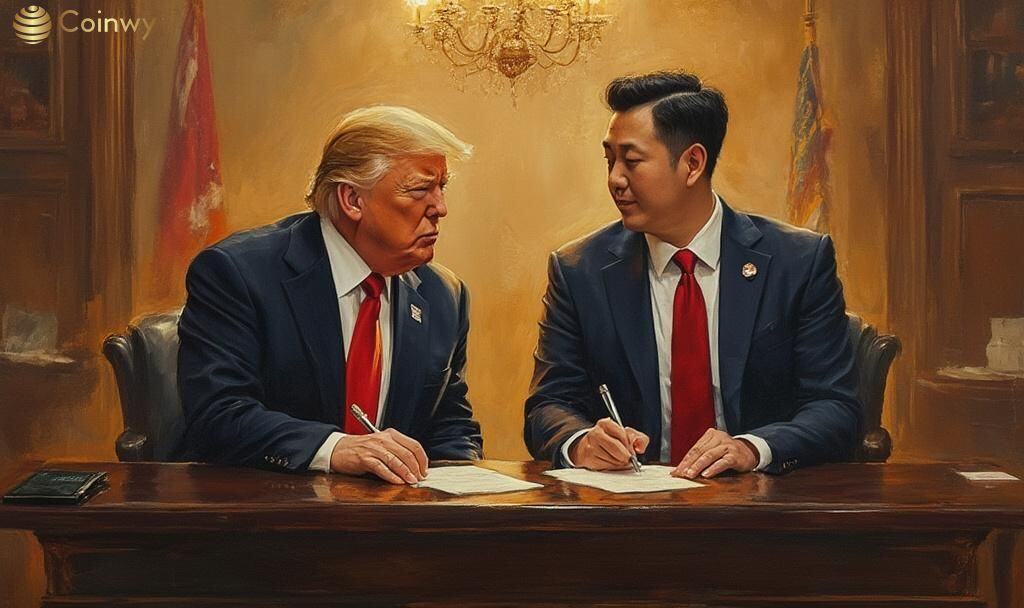- Trump pardons Binance’s founder, sparking financial interest.
- BNB prices could see fluctuation.
- Regulatory landscape and market sentiment may shift.
Donald Trump has pardoned Binance founder Changpeng “CZ” Zhao on October 23, 2025, highlighting a key shift in cryptocurrency’s regulatory and political landscape.
The pardon could significantly impact Binance’s BNB token, ushering in potential market volatility and affecting broader crypto market sentiment.
Donald Trump has issued a pardon to Changpeng “CZ” Zhao, founder of Binance, impacting major cryptocurrency exchanges. This decision reflects a significant pivot in the regulatory environment influencing digital assets. Legal challenges faced by CZ shaped previous market conditions.
President Trump’s constitutional action follows CZ’s guilty plea and a hefty penalty linked to money laundering at Binance. He received a four-month sentence in 2024 and a $50 million fine. CZ’s resignation limits his future leadership endeavors. “President Trump exercised his constitutional authority by issuing a pardon for Mr. Zhao, who was prosecuted by the Biden Administration in their war on cryptocurrency,” said Karoline Leavitt, White House Press Secretary.
The pardon boosts BNB and Aster prices, with anticipated reactions stemming from renewed optimism toward regulatory relief. Industry backlash or support may influence further price volatility. Investors are monitoring potential shifts following the news.
Financial consequences include Trump family’s link to Binance, benefitting from a substantial $4.5 billion gain post-election. The pardon introduces complex political dynamics, intertwining financial interests and crypto market responses.
Market patterns suggest previous executive pardons lead to immediate market upticks, potentially benefiting exchange and DeFi tokens. Investor confidence often spikes as perceived regulatory risks decline.
Historical data indicates similar events drive temporary rallies in connected assets like BNB. Industry analysts observe potential US market re-openings, sparking renewed interest in regulatory-sensitive cryptocurrencies, contingent on future regulatory actions.






